So I was browsing Super User, and I thought, 'say, what exactly is on-topic for this site anyway?' And even though I've been on Stack Overflow for years, and I'm pretty familiar with how these sites work, it took me a considerable amount of time for me to find this information:
Okay, from front page, go to Ask Question:
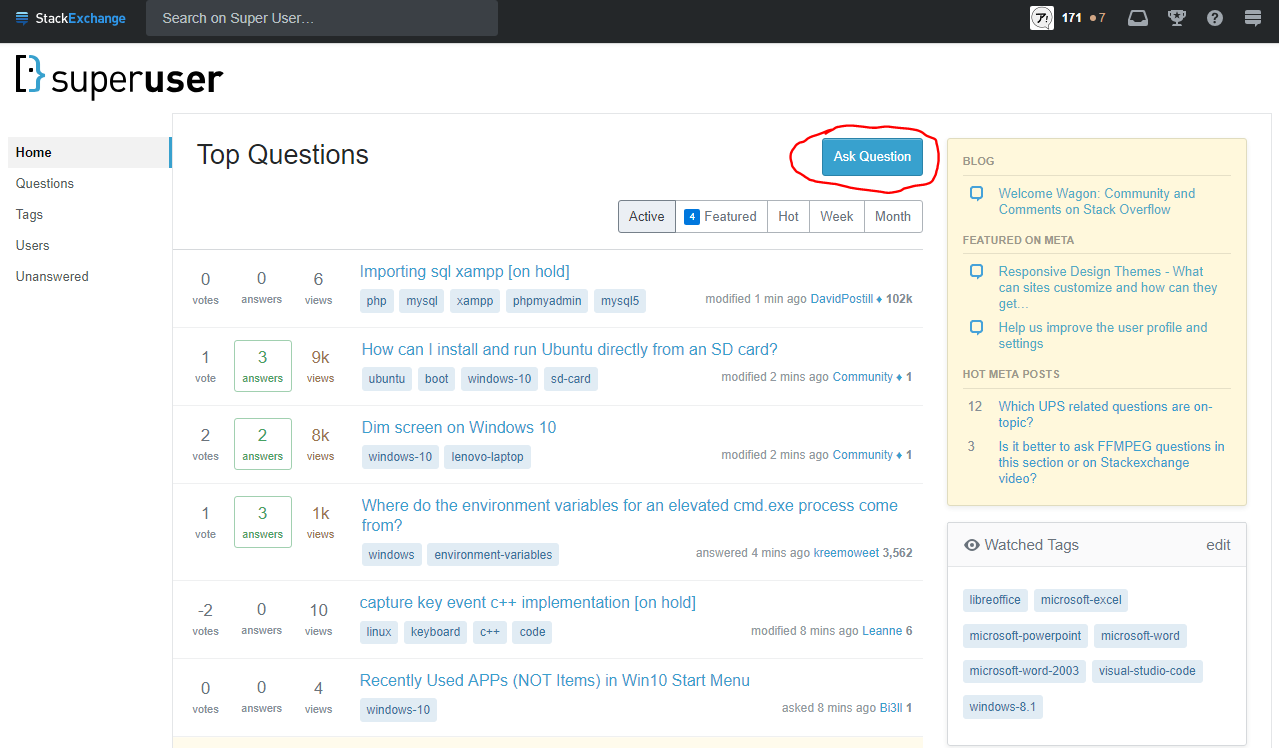
From "Ask a question", go to "asking help":
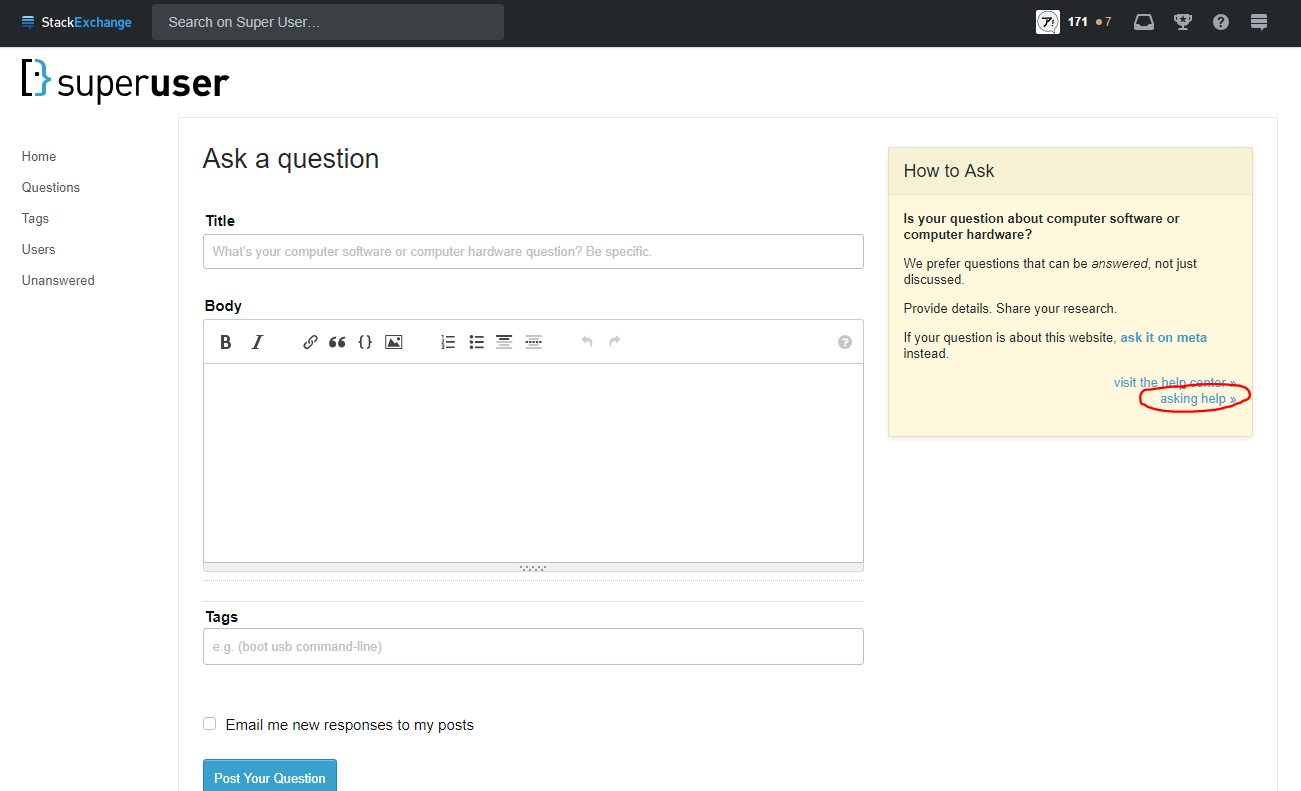
From "How do I ask a good question?", go to "What topics can I ask about here?":
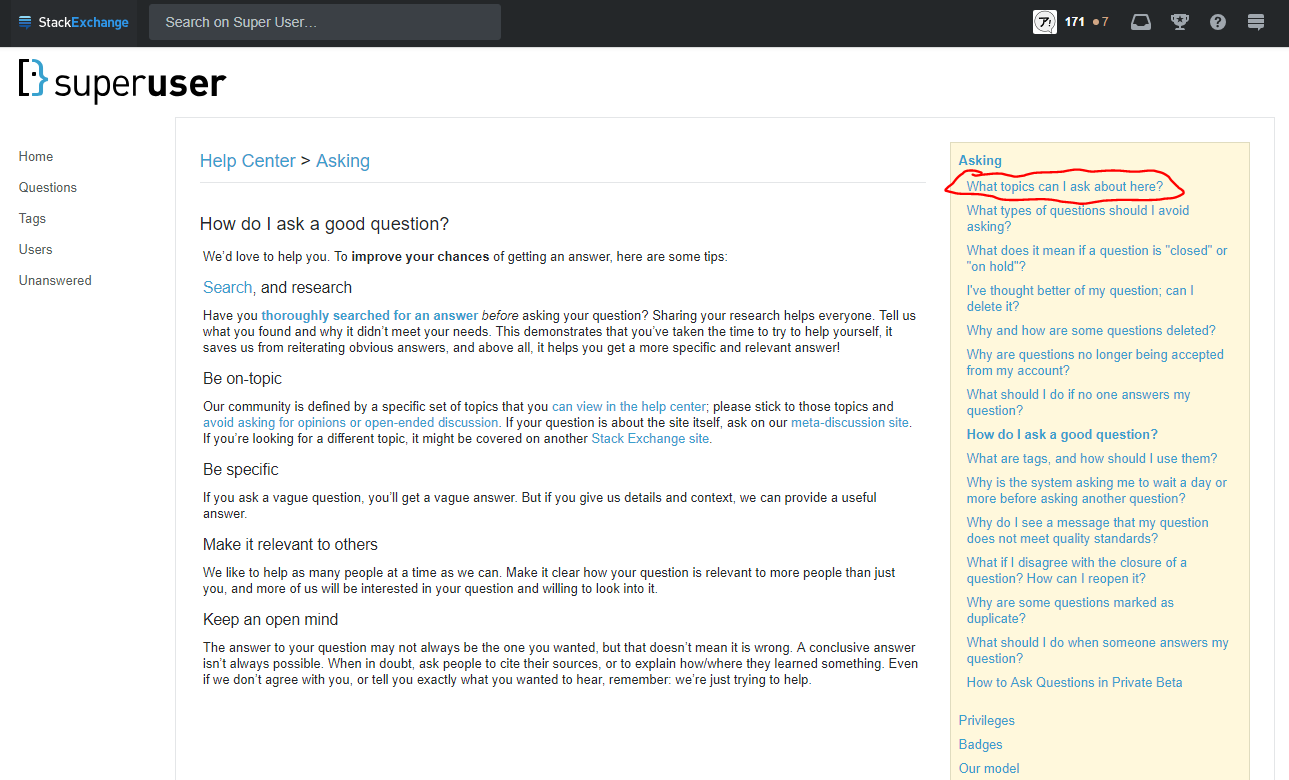
Finally! This is what I was looking for!
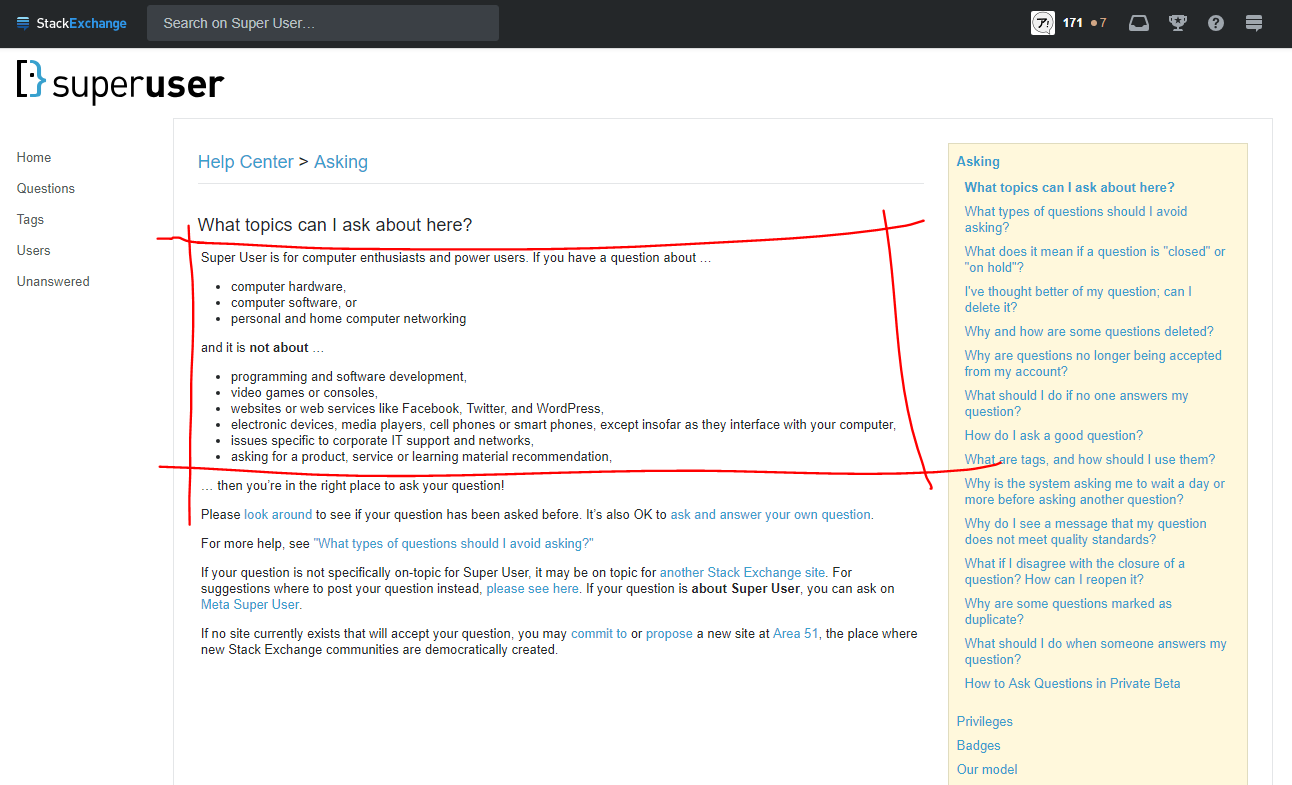
All that seems a bit unnecessarily long-winded and difficult. Knowing if a question is on-topic or not is one of the most important things that a new user could know before asking their question, yet this information is so difficult to find...
- The
(?) > Help center > What topics can I ask about here? route involves clicking on a menu button to reveal hidden menu options, so I think this route is less obvious.
- There's also the
New Tab > Google: "Super User on-topic" > What topics can I ask about here? - Help Center - Super User route, but a user shouldn't really have to go off-site to find something as fundamental as what is accepted on a site. Additionally, this route requires additional mental preparation and keystrokes, which also makes it take longer.
I'd argue that a fundamental problem that all Stack Exchange sites are suffering from is that at the moment, "on-topic" requires recall, not recognition. It should be the other way around. User interface designs should promote recognition over recall:
One of the top 10 usability heuristics advises to promote recognition over recall in user-interface design. Showing users things they can recognize improves usability over needing to recall items from scratch because the extra context helps users retrieve information from memory.
To Google "Super User on-topic", you have to recall that these sites have on-topic criteria. To go down that obfuscated long-winded route to get to the "What topics can I ask about here?" page, you have to recall the route to get to that page.
If you don't happen to already know how to get to that page, then (as previously pointed out in comments by Basj and Mad Scientist) the unnecessarily high number of operations required to get to that page would prevent users (especially new users) from reading or even being aware of the page in the first place. We want users to read this page!
My suggestion: Change the "How to Ask" box on the "Ask a question" page to link directly to the on-topic page. Users see this box right before they start typing their question, so by the "Just In Time" theory of user behaviour, putting the information here should have the highest visibility.
As an example, here's a starting point for how the Stack Overflow "How to Ask" box could look:
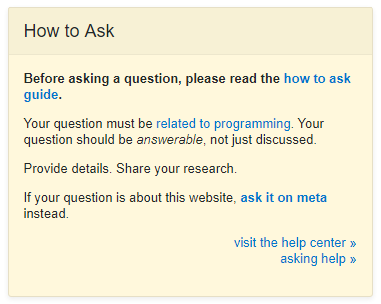
Several points:
- The first line directly links to the how to ask guide.
- This should really be the first thing that users see upon arriving on this page.
- Also, Stack Overflow has a new user to read through a version of the "How to Ask" guide and requires them to tick a checkbox that they've read everything before they can access the "Ask a question" page. But once they get here, there's no obvious way to get back to that information page to reread it or reference it in case they're unsure about something. This would fix that.
- The first line is a direct call to action to read the "how to ask" guide.
- Users will skim over things like passive questions or unassuming links tucked away in the bottom, but direct calls to action will draw their attention.
- The second line directly links to the on-topic page.
- I think any internet-savvy person knows how topic hyperlinking works, so if the user is at any point unsure about if their topic counts as "related to programming", the hyperlink is at right their fingertips to check.
- There's a huge difference between this and what is currently in place. At the moment, the "on-topic" page is buried behind several pages of links. It's completely unfair to expect new users to know where to find it or that it exists in the first place. If this page is shown to users more prominently, more users will click on it and actually read it.
- The second line uses requirement language.
- Questions must meet these requirements. Phrasing it as a question or using language like "we prefer" makes it seem like these are only suggestions, which is not the impression that we want to give. Using direct language like this gets the point across more clearly.
Users see that this information is available every time they ask a question, and continually as they're composing their question.
- Because forgetting curve.
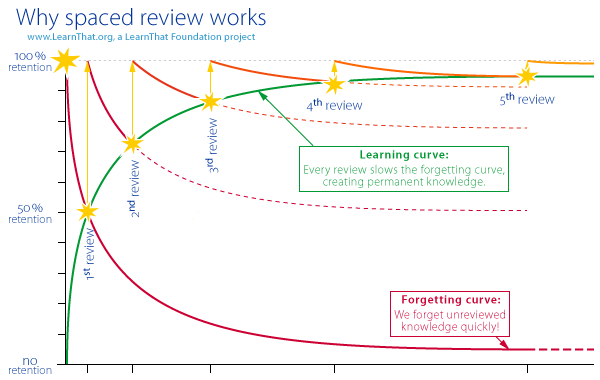
Other ideas:
- Ability for sites to add custom messages to their "How to Ask" box to address common misconceptions about the site scope.
- For example, Anime & Manga stopped accepting identification request questions a while ago, but we still see a steady flow of such questions. To be fair to the new users, that "How to Ask" box is really misleading. All of the questions that are being closed are indeed "about anime or manga" and they "can be answered, not just discussed". I feel like adding a single line of text to that box to preemptively clarify this would really save both moderators and new users a lot of grief.
- Medical Sciences still receives a fair amount of personal medical advice questions. I think it'd help a lot if there was a line in the "How to Ask" box that clarifies what exactly counts as personal medical advice and what doesn't, so that more users would be aware of this before asking a question.
From my reading of other similar discussions, I see people tend to say things like "users are lazy and they won't read instructions, what good will this do?" and "I don't think this will do any good". But the process for checking what's on-topic for a site is unnecessarily long and obfuscated even for an experienced user of these sites. I think any improvement along these lines would be a good thing.

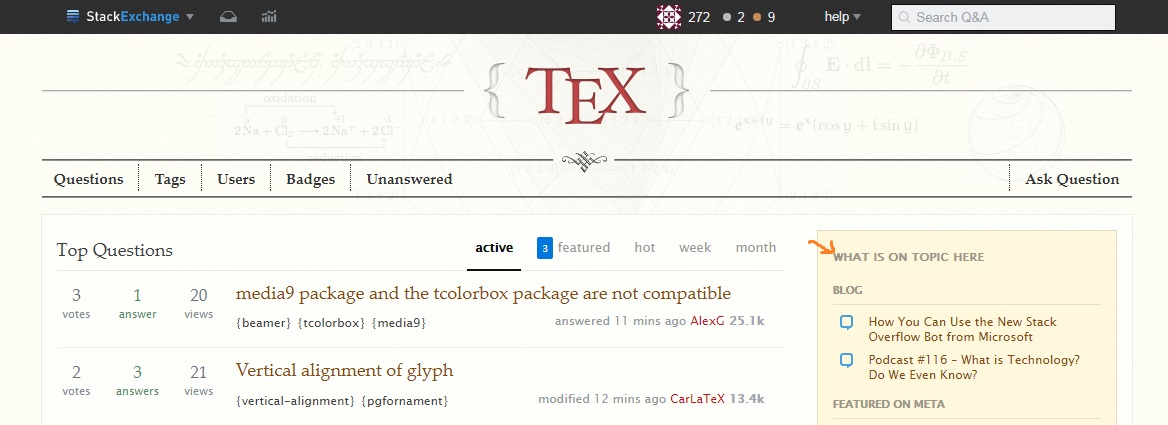
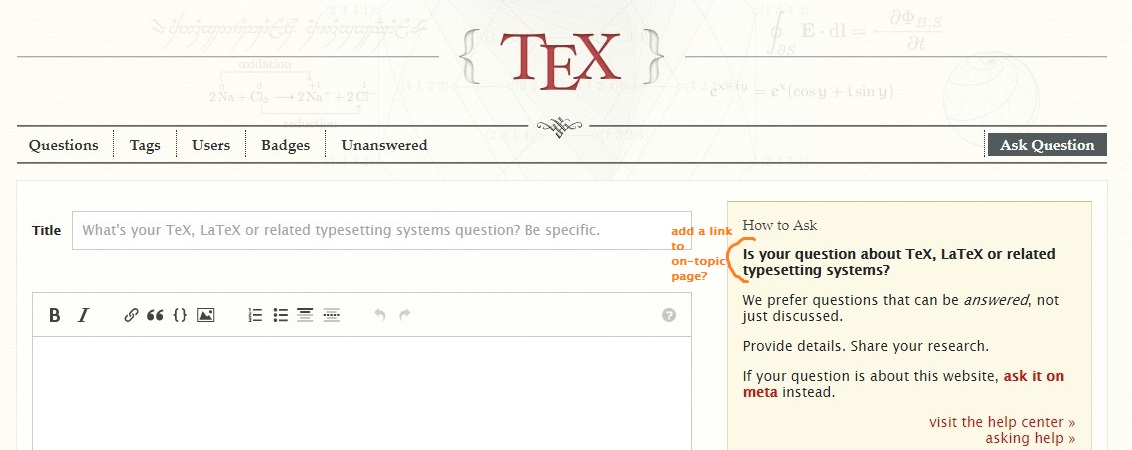
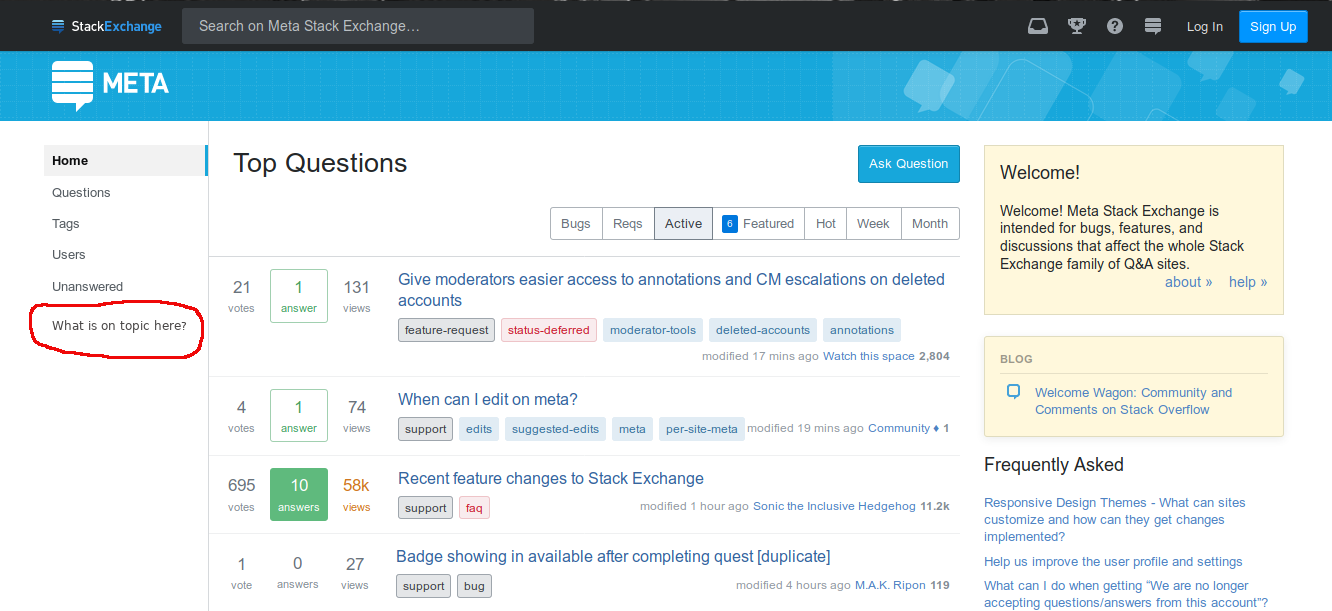






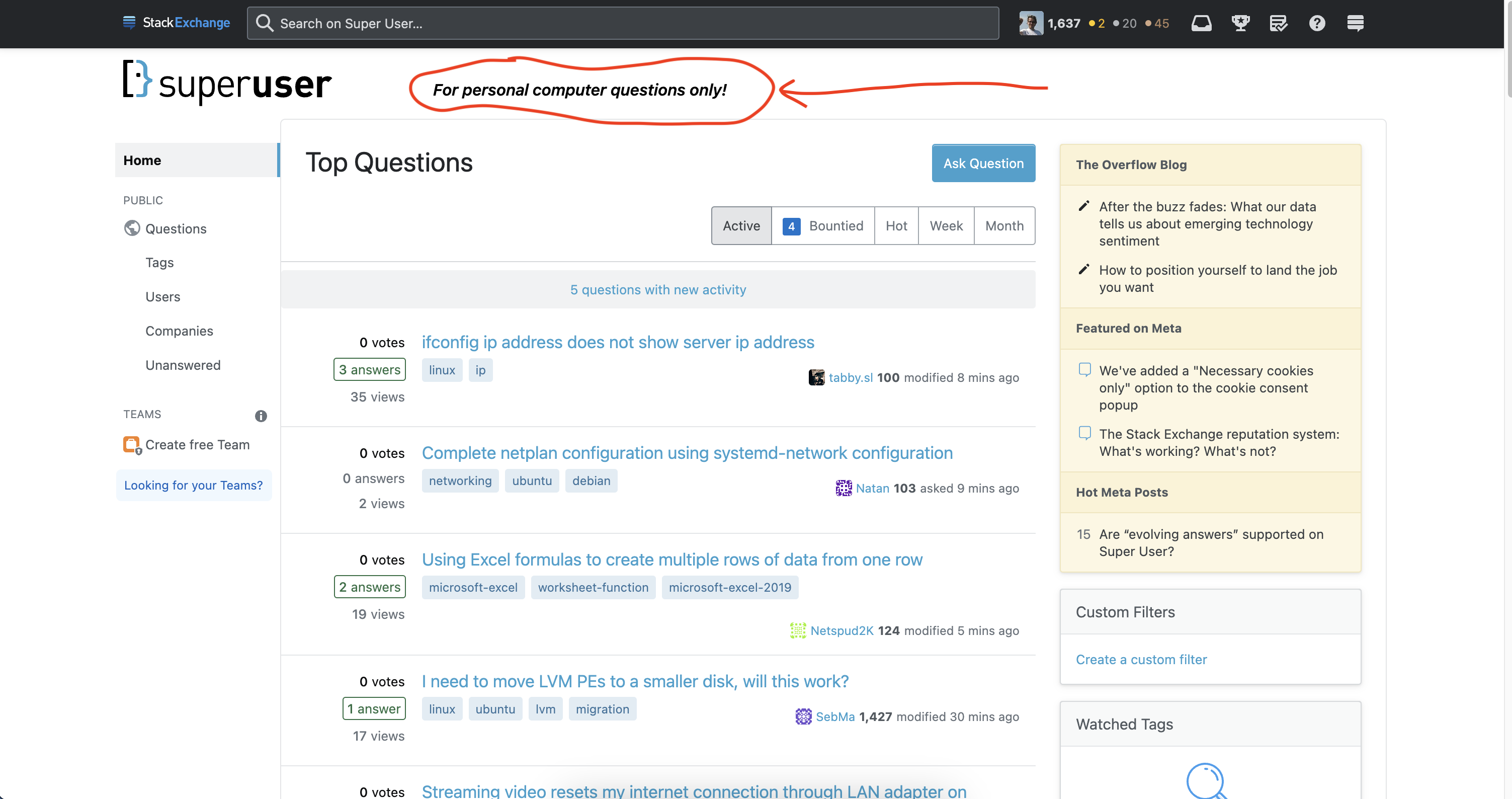
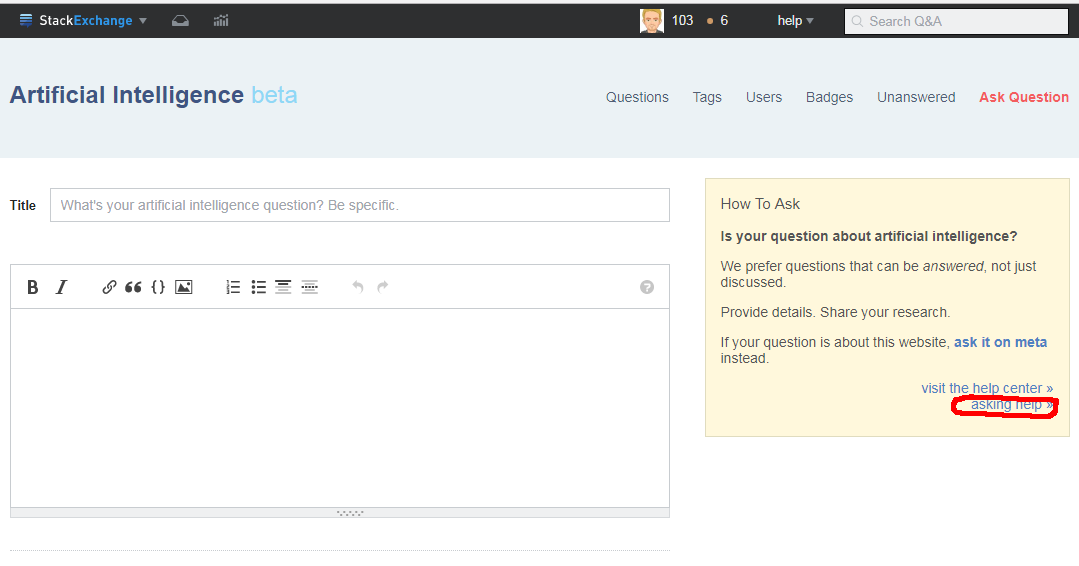
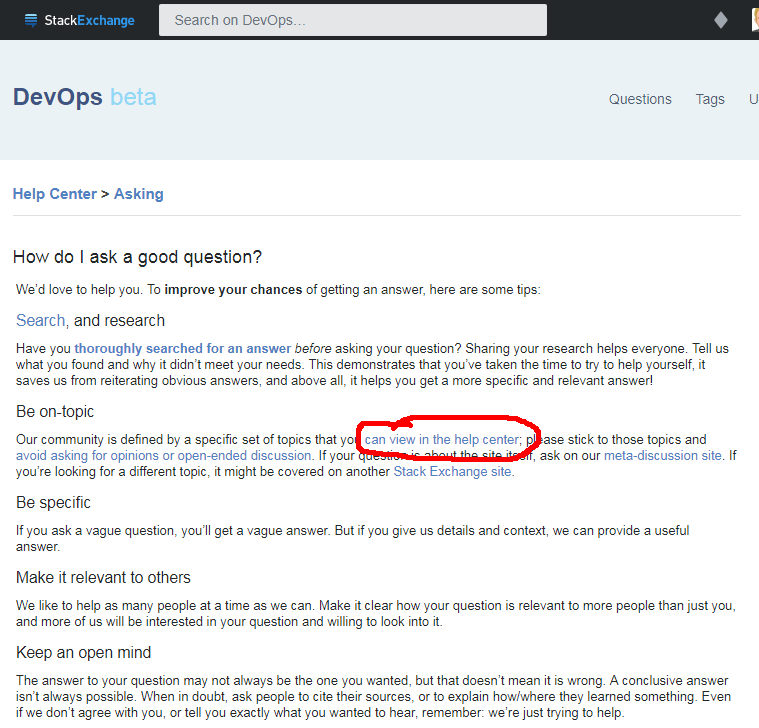

[help/on-topic]expands to just "help center"; it should expand to What topics can I ask about here?. See this request./help/on-topic(unix.stackexchange.com/help/on-topic). This link is not present on the home page. Of course, yes, if you already know that/help/on-topicexists, then it is visible, but you must know that this page exists in the first place :)